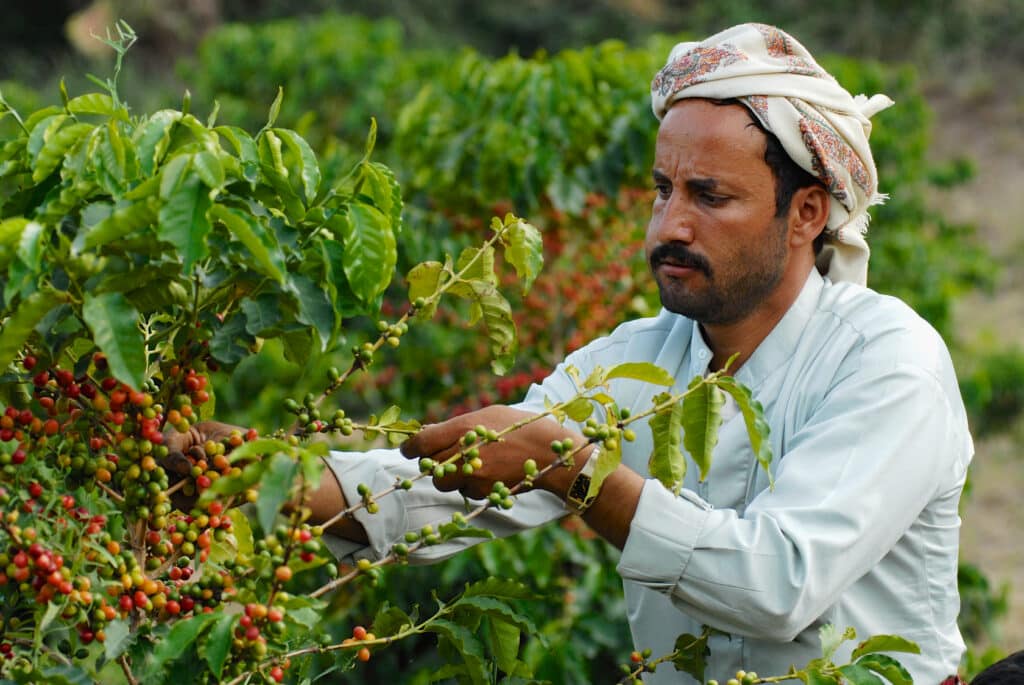After two days of insightful discussions and collaboration, the Global Food Security Summit 2024 has concluded. Hosted in Abu Dhabi, this year’s summit brought together global leaders, policymakers, and innovators to address the critical issue of
food waste and loss.
The highlight of the second day was the panel discussion: Reducing Food Loss and Waste: Key to Ensuring Food Security. This session addressed the critical impact of
food loss and waste on global
food security and explored how innovative strategies, technologies, initiatives, and policies are minimising food waste and enhancing efficiency in
food production and distribution. Featured on this panel was our co-founder
Malachy Mitchell, alongside the Secretary General of ne’ma, Kholoud Al Nuwais; CEO of Choco, Daniel Khachab; and Program Manager of the IOFS, Bakytzhan Arystanbek. Here are the key takeaways:
1. The scale of the food waste problem
The panel highlighted the staggering scale of the global food waste crisis. Approximately one-third of all food produced worldwide is wasted, amounting to nearly $1 trillion annually—equivalent to Australia’s GDP. Incredibly, preventing this level of food waste could potentially feed 700 million people—which would be enough to eliminate world hunger.
In the
UAE food waste costs the economy approximately $3.5 billion per year. With an estimated 3.27 million tonnes of food being wasted annually. Most food waste occurs at the end of the food chain, with the hospitality and domestic markets being the largest contributors.
Despite widespread recognition of this crisis, progress toward addressing it has been limited. Many countries have committed to the United Nations’ goal of halving global food waste and loss by 2030, but most will struggle to achieve this by the deadline. This is typically due to underfunding, lack of measurement frameworks, and poor infrastructure. These issues are particularly acute in the Global South.
2. Collaborative initiatives and behavioural change
The role of collaboration and partnerships in addressing food waste was a recurring theme throughout the summit. The
UAE, which is expected to meet the UN’s 2030 targets, has made significant progress in this regard. The country’s National Food Loss and Waste Initiative, known as ne’ma, has successfully collaborated with various partners to reduce food waste.
These initiatives include working with the hospitality sector to implement behavioural ‘nudges,’ like using smaller plates at buffets, collaborating with the UAE Food Bank to redistribute surplus food from major events to those in need, and educating the public on the importance of reducing food loss and waste.
Such initiatives demonstrate the effectiveness of co-created solutions and highlight the pivotal role of behavioural change in reducing food waste. By fostering partnerships and encouraging small yet impactful changes in consumer behaviour, these efforts aim to create a sustainable impact on reducing food waste.
The summit emphasised that achieving significant progress requires collective action and a shift in how societies perceive and interact with food, reinforcing the need for continued collaboration across sectors to meet global
sustainability targets.
3. AI technology and innovation as key enablers
Digitalisation and emerging AI technologies expected to play a crucial role in reducing food waste by creating efficiencies throughout the food system. AI algorithms that can analyse vast quantities of data and forecast consumer demand will enable food producers and retailers to optimise inventory levels, reducing food waste and overproduction.
Moreover, advanced AI systems can improve food selection and sorting processes, ensuring that only suitable produce reaches consumers, while others are redirected more effectively. AI-driven applications are also helping consumers manage household food waste. These applications can suggest recipes based on available ingredients nearing expiration, thereby encouraging more efficient use of food resources.
4. Policy frameworks and global success stories
The panel also discussed several successful policy initiatives aimed at reducing food waste. Japan’s Food Recycling Law, for example, has reduced food waste from 9.8 million tonnes in 2000, to 4.72 million tonnes in 2023 by repurposing surplus food into
animal feed, fertiliser, and energy.
Other notable examples include Singapore’s regulations on organic waste separation, which mandate large shopping centres and hotels to separate organic waste from general waste. This has led to a more efficient waste-management process, particularly in urban environments. In Africa, Morocco’s subsidisation of solar-powered cold storage units for farmers reduced overall food loss by 20%.
All these policies showcase how targeted regulation can significantly reduce food waste by encouraging businesses and consumers to adopt more
sustainable practices.
5. Urgent need for aggressive action and improved measurement
The panel agreed that progress toward achieving the UN’s food waste reduction goal for 2030 had been uneven, with some countries making significant strides while others continued to struggle. They stressed the need for more aggressive action, greater behavioural change, and improved measurement frameworks.
Similarly, at an organisational level, the panel suggested that effective
waste management strategies are required to ensure that companies meet their
ESG targets. This includes prioritising waste prevention through lean manufacturing techniques and advanced technologies, reusing byproducts, recycling materials in packaging, and adopting energy recovery methods to maximise resource efficiency and minimise waste.
Tackling food waste
At
Farrelly Mitchell, we are committed to making meaningful change in the fight against food waste. Our ongoing partnership with ne’ma will allow us to closely collaborate with key stakeholders and implement initiatives that promote efficient food use and minimise unnecessary losses.
We believe in a data-driven approach that promotes
sustainable practices throughout the food system. Our services include
strategy and execution,
supply chain optimisation,
water management,
food loss and waste, and much more.
Contact us today to discover how our expert analysts can provide tailored solutions that reduce your enterprise’s environmental footprint.














